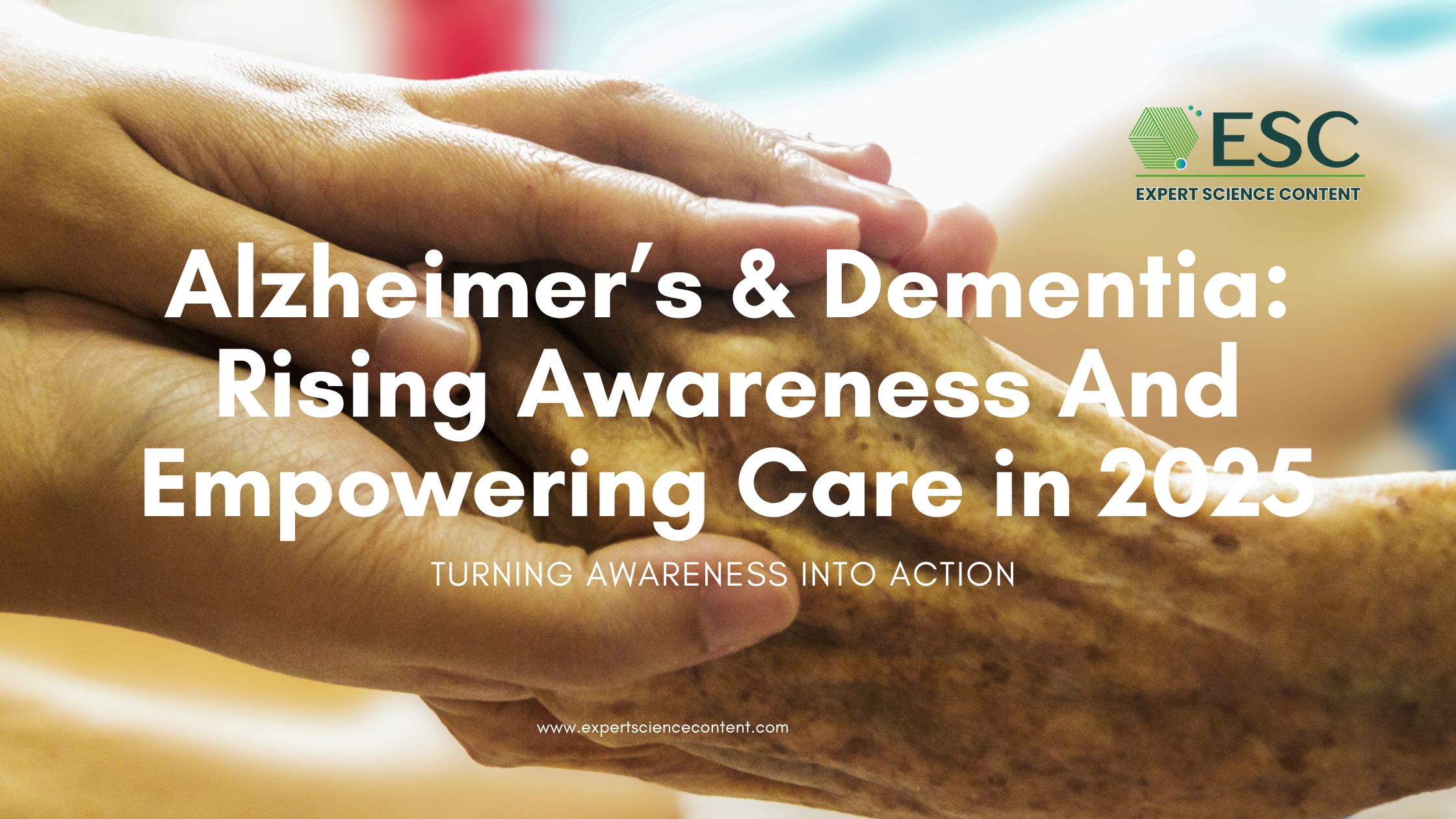Alzheimer’s & Dementia: Rising Awareness And Empowering Care in 2025

Dementia and Alzheimer are something we hear very frequently these days at any social events or family gatherings. Highlighting the fact that it is increasingly becoming a critical public health issue, affecting millions of lives worldwide. September month is designated as World Alzheimer’s Month, a global initiative and effort to raise awareness and challenge the stigma surrounding Alzheimer’s disease and other forms of dementia. World Alzheimer’s Day, observed every year on September 21, to serve and empower caregivers and to promote support for those affected. As the world observes heightened awareness for Alzheimer’s and dementia, new scientific breakthroughs and growing prevalence are spotlighting the critical need for early detection, better care, and informed public discourse.
Alzheimer: A Growing Global Challenge
Dementia, an umbrella term encompassing memory-loss conditions like Alzheimer’s, currently affects over 55 million people worldwide, with about 10 million new cases each year as per a data published by World Health Organization. As per research finding and growing patients count, global dementia cases could triple, reaching over 150 million by 2050. In countries like Australia, where 433,300 people were living with dementia in 2025, the number is expected to climb to 812,500 by 2054 without major intervention. While in India, the estimated dementia prevalence for adults above 60 years is 7.4% and at present about 8.8 million Indians older than 60 years are living with dementia.
Detection Breakthroughs: A Blood Test That Could Change Diagnosis
Researchers at University College London (UCL) are leading a pivotal trial of a blood test that detects the p‑tau217 protein (a core biomarker linked to Alzheimer’s) with 90% accuracy comparable to expensive PET scans and lumbar punctures. Over 1,000 UK patients are participating in the test to evaluate if earlier findings can improve or enhance treatment planning and overall care to a dementia patient. If it passes the trial and validation, this test could revolutionize early diagnosis and timely intervention leading to better care.

Early Signals: The Fragrance of Memory Loss
In an insightful new study from Germany, scientists identified olfactory dysfunction, or loss of smell, as one of the earliest measurable signs for Alzheimer detection, occurring before traditional memory-related symptoms. Microglial cells mistakenly destroy essential nerve connections between the brain’s locus coeruleus and the olfactory bulb, shedding light on neurodegeneration’s early stages.
Mental Health in Dementia
A recent analysis in BMJ Mental Health uncovered a troubling fact that individuals with multiple psychiatric disorders, such as anxiety, depression, psychosis, and substance misuse face significantly elevated dementia risk in future. Simply having two disorders doubled the dementia risk, while four or more disorders increased it eleven‑fold. Thus this finding shows the importance of mental health integrated care and early mental health intervention.
Bridging Research and Public Understanding
Many people believe that memory loss is just normal for old people and it is a natural part of aging. I myself experienced that many times with my close relatives and family members. But it is not, dementia is not a natural or inevitable part of aging! India has fewer than 50 full-fledged dementia care centres and most of them are in major cities, run by private hospitals or NGOs. Because of the widespread misunderstanding among the general public about dementia as a normal part of aging and not a medical condition.
However the scenario is different in the U.S.A. despite growing numbers and strong evidence, dementia remains underrecognized. A U.S. survey found a staggering 79% of adults aged 45+ want to know early if they have Alzheimer’s, but many face barriers in obtaining accurate diagnosis or access to dementia care. Globally, policy frameworks still often omit dementia from non‑communicable disease strategies, even as it is projected to become the third leading cause of death by 2040.
Conclusion: Turning Awareness into Action
From affordable diagnostics, early biomarkers, more awareness programs to mental health integration and global policy gaps, the fight against dementia is evolving. These concerted research efforts highlight the urgency, not just in medical innovation, but in spreading awareness, reducing stigma, improving access, and investing in preventive strategies.
Let’s spread awareness, be more aware and empathetic towards someone who is suffering from dementia. If you want to read more about the causes and prevention of dementia read our latest blog on “ Dementia: A Growing Health Problem”.
This month, we at ExpertScienceContent shedding light on how thoughtful, well-researched content can support awareness and education around Alzheimer’s disease. If you want such informative content visit Expertsciencecontent and get in touch with us.
About the author
Dr. Anindita Talukdar
Our Latest Articles

Alzheimer’s & Dementia: Rising Awareness And Empowering Care in 2025
September month is designated as World Alzheimer’s Month, a global initiative and effort to raise awareness and challenge the stigma surrounding Alzheimer’s disease and other forms of dementia.

Cataract Eyedrop VP01-001
Cataract Eyedrop VP01-001: A Promising Noninvasive Alternative to Cataract Surgery That Could Transform Global Vision Care Whatsapp Icon-email What Are Cataracts and Why Are They So Common? Cataract, the world’s

Turning Heads in Oncology: Lab Study Proves Dandelion Root Kills 95% of Cancer Cell
Turning Heads in Oncology: Lab Study Proves Dandelion Root Kills 95% of Cancer Cell Whatsapp Icon-email Dandelion or scientifically known as Taraxacum officinale, found commonly across the globe and often

Fungal Species Found to Digest Plastic Waste
Breakthrough Discovery: Fungal Species Found to Digest Plastic Waste Whatsapp Icon-email Source: Alan Rockefeller, CC BY 4.0, via Wikimedia Commons Each year, an estimated 625,000 garbage trucks’ worth of plastic
